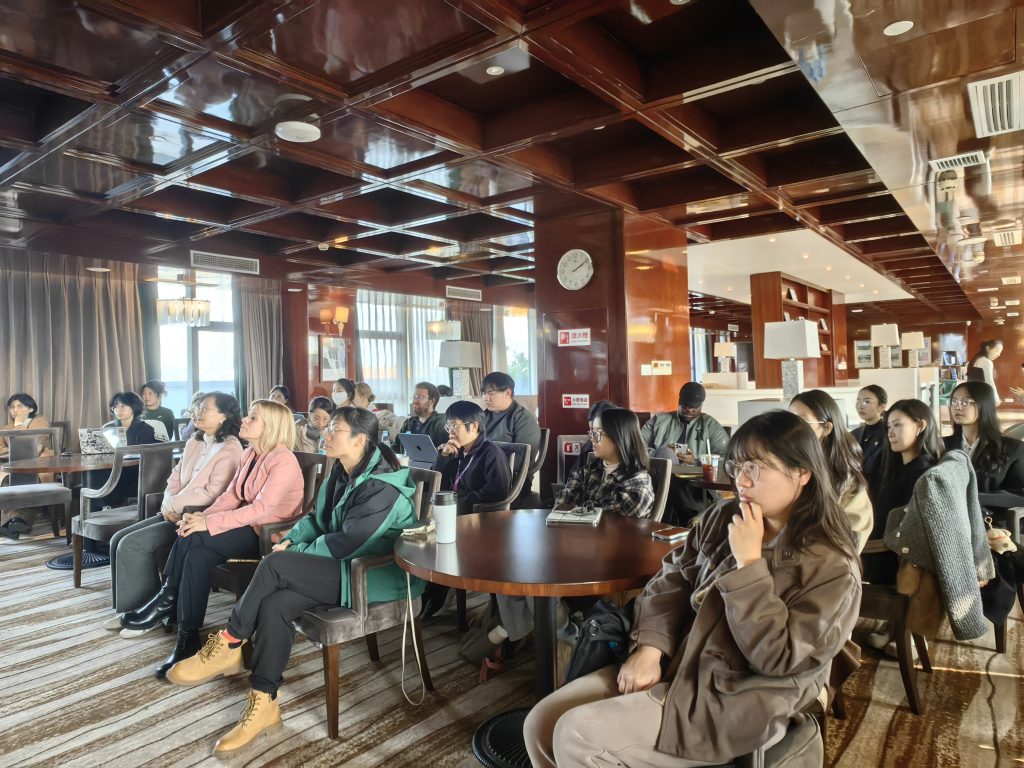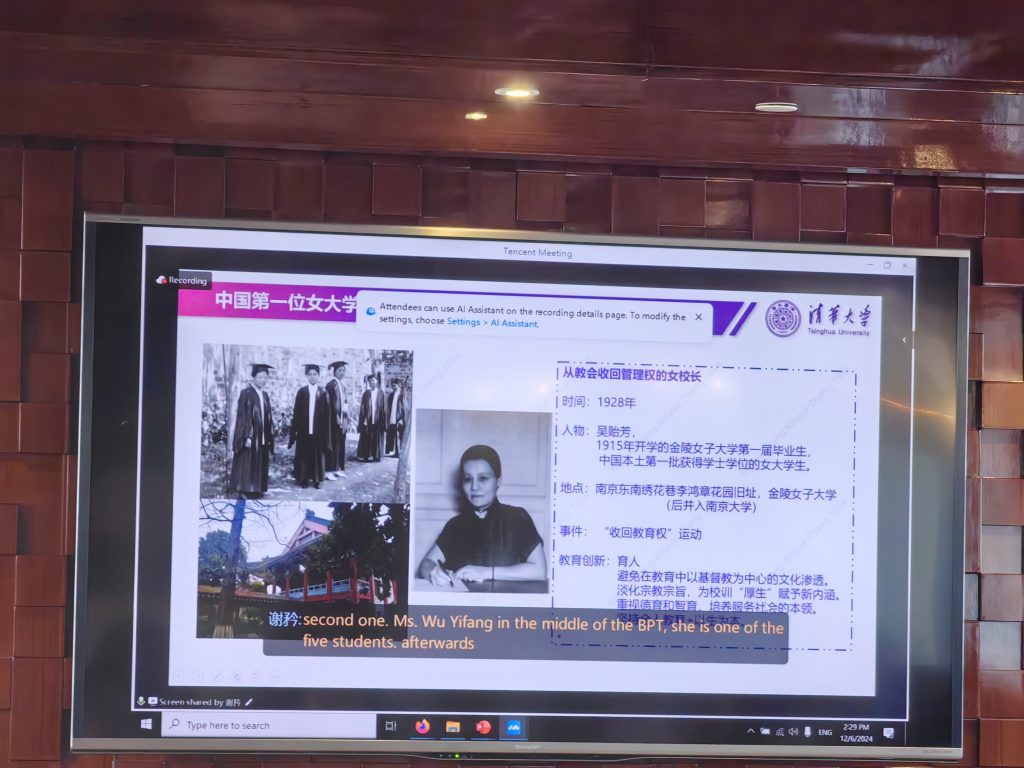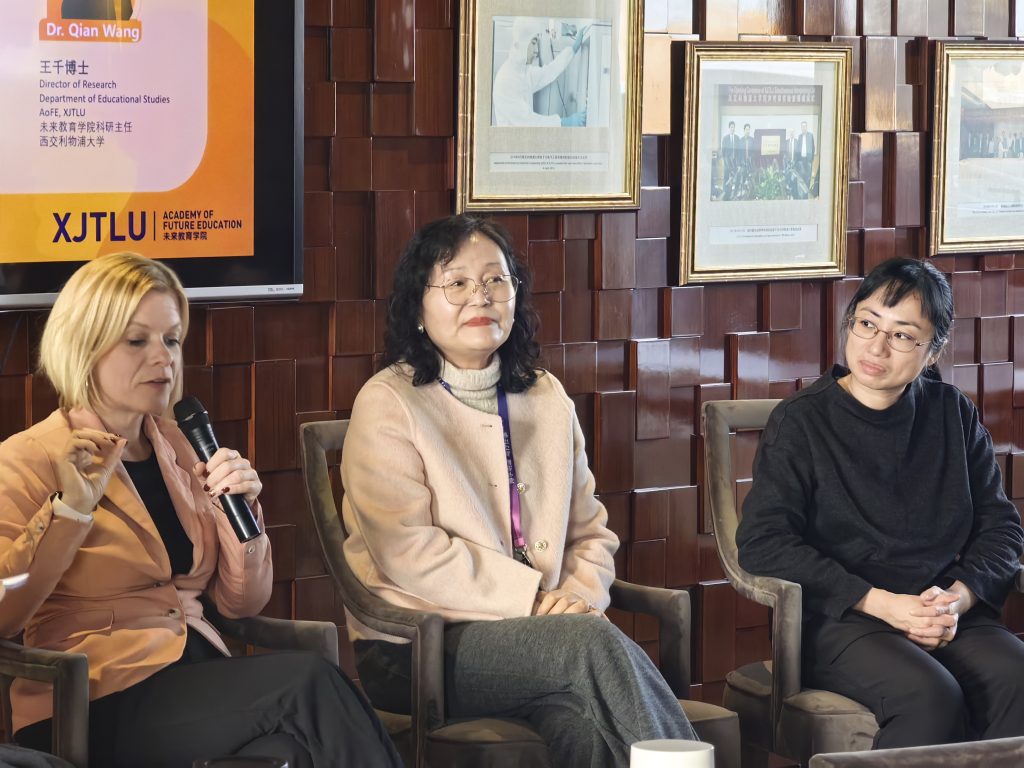15 Dec 2024
On December 6, the Research Centre for Strategic Leadership in Educational Innovation (CSLEI) at the Academy of Future Education, Xi’an Jiaotong-Liverpool University (XJTLU), hosted a dynamic and inspiring seminar on Women’s Leadership and Educational Innovation. The event attracted over 100 participants both online and offline, sparking a profound dialogue on how women’s leadership can serve as a driving force for educational transformation.

The CSLEI is dedicated to advancing cutting-edge research in two core areas: first, exploring how leadership drives educational innovation; and second, examining how educational leadership can be reimagined to meet the demands of 21st-century learning. Aligned with the United Nations Sustainable Development Goals (SDGs), the center aims to foster impactful scholarship with both national and international relevance. Currently, a dedicated team of approximately ten researchers is working to build a pioneering research agenda in these key areas.
The seminar featured a keynote address by Professor Jin Xie, Director of the Career Development Center for Students and the Moral Education Research Center for Youth at Tsinghua University.

She emphasized that women in educational leadership must consider both the core mission of education—nurturing talent—and the broader demands of effective organizational management. Professor Xie advocated for a deep belief in education as a means of empowering women and enhancing their social status, while also stressing that leadership should not be judged by gender. Female leadership, she argued, is shaped by unique traits and perspectives and deserves both recognition and respect. Her keynote set a powerful tone for the seminar, encouraging a deeper appreciation of women’s leadership in education.
The roundtable discussion further expanded the conversation, featuring Professor Wen Wang, Associate Dean of the Academy of Future Education; Ms Rebecca Wakelin, Director of Educational Development Unit; and Dr Qian Wang, Director of Research. These three distinguished female leaders offered thoughtful reflections on the unique qualities of women’s leadership, the challenges they face, and the pathways toward meaningful impact.

(From left to right: Rebecca Wakelin, Professor Wen Wang, Dr Qian Wang)
Professor Wen Wang spoke eloquently about the inclusive nature of female leadership in education. She observed that women leaders often excel at integrating diverse perspectives and fostering collaborative environments. She also noted their strengths in building strong school-family partnerships and serving as role models who inspire female students to grow in confidence—especially in fields traditionally dominated by men.
Dr Qian Wang shared insights from her personal journey transitioning from the corporate world to education. She reflected on how assertive traits valued in business needed to be adapted to more collaborative and empathetic approaches in educational settings. Through her own specific examples, such as decision-making and support encountered when dealing with unexpected events, she demonstrated how female leaders can demonstrate resilience and wisdom in the face of adversity. She emphasized that women's leadership is not only dependent on women's natural biological attributes, but also on women leaders' creativity based on their own talents and preferences.
Rebecca Wakelin then shared a story from her early career. She recounted how a female leader she met inspired her desire and exploration of leadership through trust and empowerment. She emphasized that there are two kinds of leaders: those who lift others and drive innovation through collaboration, and those who are self-focused and status-driven. “My one piece of advice to any aspiring female leader, and indeed all leaders, is that if you are working just for yourself, you may be choosing the wrong path.”
During the audience Q&A session, the speakers offered practical advice on how to balance demanding leadership roles with personal growth and family life. They emphasized the importance of time management, seeking support from family, and building strong social support networks. They encouraged women to structure their lives around priorities that align with their values and goals.
This seminar highlighted both the vast potential and the unique challenges facing women in educational leadership. The rich exchanges between speakers and audience members offered invaluable insights into how gender equity and diversity can be advanced in the education sector. As education and leadership continue to evolve, the role of women leaders will only grow more vital. We look forward to seeing women’s leadership gain deeper respect and broader recognition—and to witnessing more female leaders contribute boldly and creatively to the future of education.
By Xinyue Zhang
Translated by Sichen Fan
15 Dec 2024








